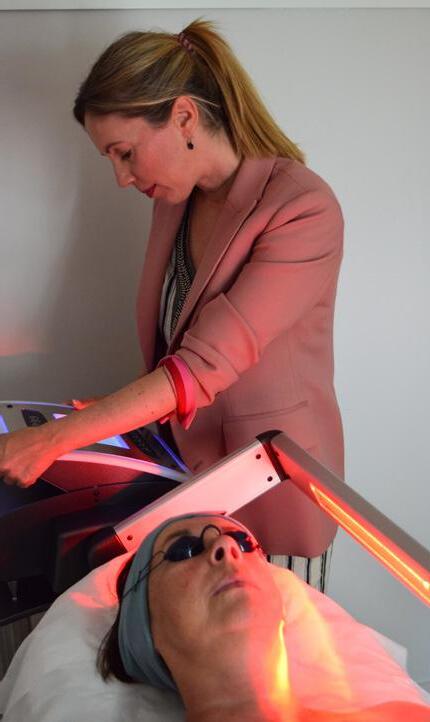
2 minute read
Dealing with chronic stress
Are you tired but wired, have unexplained symptoms, or keep getting sick and don’t know why? Chronic stress may be the cause.
Dr Marissa Kellaher explains.
Advertisement
It’s an issue many of us don’t think about, yet research shows it’s responsible for up to 80% of visits to GPs. This type of stress can be hard to identify, as the symptoms are often vague, and being constantly stressed is often seen as normal in a society that values productivity over rest.
Struggling to switch off, even when you’re exhausted, craving salty or sweet foods, or getting sick all the time, are common in chronic stress. Even symptoms like palpitations, chest pains, or diarrhea can be stress-related.
Our mind and body are controlled by two opposing systems - the ‘fight flight or freeze’ system and the ‘rest and digest’ system. They’re both vital, and ideally we switch between them as needed. But when we’re chronically stressed, we get ‘stuck’ in fight flight or freeze - meaning our stress hormones stay elevated. And it’s the effect of these hormones that cause symptoms.
Chronic stress isn’t always easy to identify either, while acute stress is easy to spot (such as a death, or natural disaster), its often ‘microstresses’ - the constant small daily stresses - that have the most impact. Yet these can become so normalized we don’t realise just how much they’re affecting us. Microstresses are harder to identify, as they aren’t always obvious. They don’t tend to trigger the same level of support as larger stresses do, meaning we feel like we ‘should be able to manage.’ This can leave us feeling exhausted, isolated, overwhelmed, and tense. So, what can help? The first step is identifying where stress is coming from. Think through your day, and write down all the things that make you feel tense. If you aren’t sure, think of how your body feels when stressed, then think of what situations trigger this feeling.
The next step is taking action. Often when we’re stressed we tend to lump stresses together, then feel overwhelmed and unsure what to do. Yet we have far more control over stress than what we realise.
Start by dividing your list into stressors you have less control over (such as finances, family responsibilities) vs those you can control (such as social media use, overcommitting, lack of sleep.)
Then reduce the stresses you can control, such as:
Prioritising sleep
Leaving your phone switched off after you wake, and taking time to have a cup of tea, meditate or stretch instead.
Getting outside in your lunch break to get fresh air and movement.
Saying ‘no’ to non-essential things you don’t enjoy.
Being kind to yourself, and not trying to do too much (or be everything to everyone).
Limiting multi-tasking.
Lastly, think of ways to ‘turn down’ your stress response. This is called stress resilience - improving our ability to cope with stress. These are like exercise, as they need to be done regularly - the more often you do them, the more they help!
Some tips include:
Taking ‘micro moments’ during the day to slow down, take a deep breath, and pay attention to how you feel. Try it while making a cuppa, going to the bathroom, or in your break.
Try deep breathing techniques when you feel tense.
Journalling and gratitude practicing.
Time in nature.
Exercise you enjoy.
Mindfulness and meditation.
Above all, be kind to yourself. In our society there is so much pressure to do everything right all the time, this creates stress in itself.
Learn to realise it’s okay to take time and space for yourself- after all, you only live once.
Dr Marissa Kelaher is a GP and lifestyle medicine doctor. She runs health courses and offers one-onone consults at yourlifestylemedics.com














